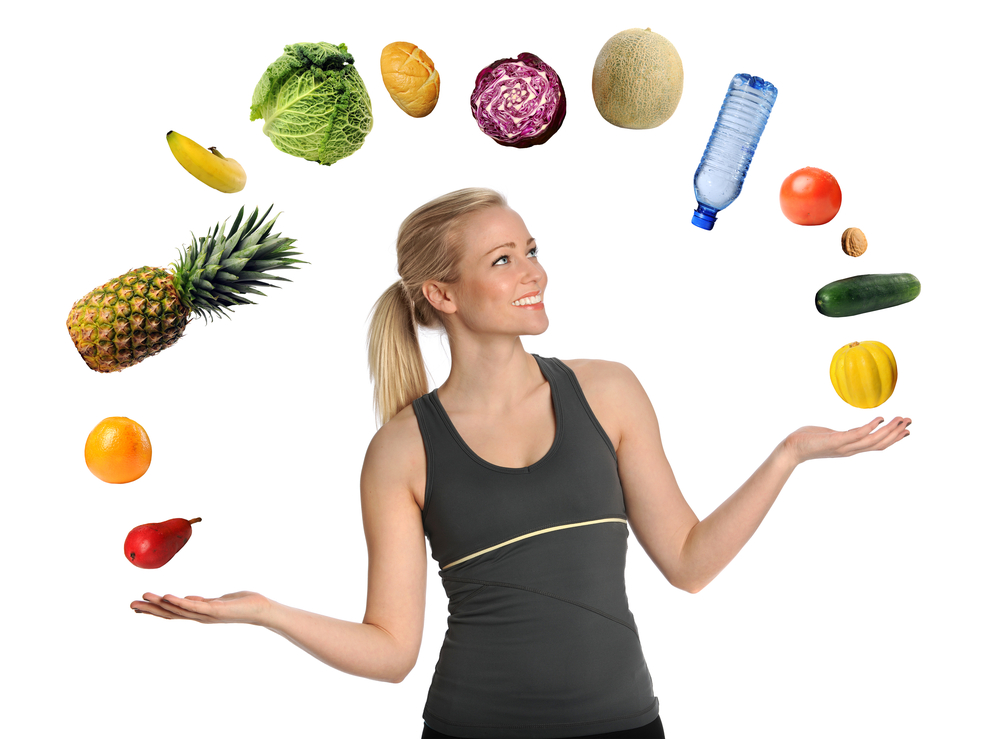
What Is a Balanced Diet?
A balanced diet is one that gives your body the nutrients it needs to function correctly. You should obtain the majority of your daily calories from fresh fruits, fresh vegetables, whole grains, legumes,nuts and lean proteins in order to get proper nutrition from your diet.
What Are Calories?
The number of calories equals to the amount of energy stored in that food. Your body uses calories to do their daily work such as walking, thinking, breathing, and other important functions. The average person needs to eat about 2,000 calories every day to maintain their weight.
A person’s specific daily calorie intake can vary depending on their age, gender, and physical activity level. Men generally need more calories than women and people who exercise need more calories than people who don’t.
Why is Balanced Diet Important
Your organs and tissues need proper nutrition to work effectively that’s why you need to have a proper nutrition representing the three food groups—go,grow,and glow. Poor diet leads your body to disease, infection, fatigue, and poor performance. Children without having good nutrition run the risk of growth and developmental problems and poor academic performance. Bad eating habits can persist for the rest of their lives.
How to Achieve a Balanced Diet
Balanced diet suggests to take foods that are low in unnecessary fats and sugars but high in vitamins, minerals, and other nutrients. The following food groups are essential parts of a balanced diet.
Fruits. Fruits make tasty snacks besides the nutrition it can provide. Always choose fresh fruits and note if they are in season.
Vegetables. Vegetables are primary sources of essential vitamins and minerals. Dark, leafy greens generally contain the most nutrition and can be eaten at every meal. Examples of dark leafy greens includes spinach, kale, green beans and brocolli.
Grains. Whole grains provide more nutrition than refined one. It is because the hull of the white flour grain is removed during the refining process. The hull is the outer shell of the grain and is where the majority of the grain’s nutrition lies.
Proteins . Meats and beans are primary sources of protein. Protein is a nutrient essential for proper muscle and brain development. Lean, low-fat meats such as chicken, fish, and certain cuts of pork and beef are the best options. Removing the skin and trimming off any visible fat are easy ways to reduce the amount of fat and cholesterol in meats. Other good sources of protein, which contain many other health benefits, fiber and other nutrients, include nuts and beans.
Tofu, tempeh, and other soy-based products are excellent sources of protein and are healthy alternatives to meat.
Dairy. Although they’re major sources of fat they provide calcium, vitamin D, and other essential nutrients. It is then best to choose small portions of full-fat cheeses and reduced-fat or fat-free milk and yogurt. Plant-based milks, such as those made from flaxseed, almond, or soy are typically fortified with calcium and other nutrients, making these excellent alternatives to dairy from cows.
Oils. Opt for low-fat and low-sugar versions of products that contain oil, such as salad dressing and mayonnaise. Good oils, such as olive oil, can replace fattier vegetable oil in your diet. Avoid deep-fried foods because they contain a large number of empty calories.
Aside from adding certain foods to your diet, you should also reduce your consumption of certain substances in order to maintain a balanced diet and a healthy weight. These include, alcohol, refined grains, solid fats, saturated fats, trans fats, salt and sugars
If you have questions about your diet or feel that you need to lose weight or change your eating habits ask your doctor or dietician. They can suggest dietary changes that will help you get the nutrition you need while promoting your overall health.
Overview and FactsTypes and SymptomsDiagnosis & MedicationsOverview and Facts Tetralogy of Fallot is a congenital heart defect that affects the [...]
Overview and FactsTypes and SymptomsDiagnosis & MedicationsOverview and Facts Trichinosis, also known as trichinellosis, is a parasitic infection caused by [...]
Overview and FactsTypes and SymptomsDiagnosis & MedicationsOverview and Facts Trigeminal neuralgia is a neurological condition characterized by severe facial pain. [...]